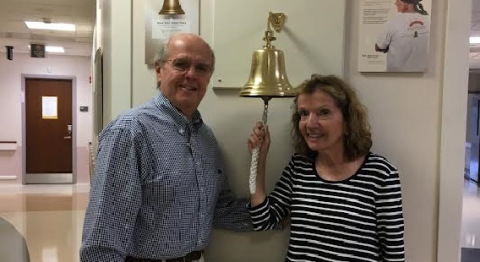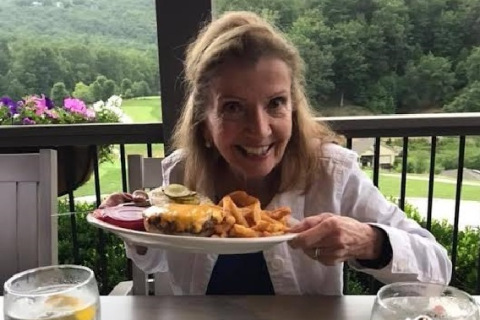Mesothelioma Survivor Talks Asbestos Awareness and Advice

Fact Checked | Written by: Travis Rodgers | Last Update: 11/12/2024 | 4 Min Read
Peritoneal mesothelioma survivor Epifanio Figueroa tells The Mesothelioma Center at Asbestos.com that he came into contact with asbestos through both primary and secondary exposure. He says his father’s occupational asbestos exposure and then his own occupational exposures put him at risk.
Epifanio says his father was a taxi driver who later became a salesman for used auto parts. He was also exposed to asbestos in car parts doing his own automotive work.
“I first came in contact with asbestos through the brakes of cars,” Epifanio explained. “I also used to be a mechanic for our household, so I would disassemble cars and came into contact with asbestos.”
In addition to exposure from automotive asbestos products, he had other occupational exposures. Epifanio says he was exposed through a job overseeing the demolition of several buildings filled with the toxic mineral. He says he also worked as an engineer and was exposed to asbestos dust.
Symptoms Lead to a Surprise Diagnosis
Epifanio says his symptoms began when his stomach started swelling and wouldn’t stop. He went to a doctor who told him fluid was accumulating in his peritoneal cavity.
The condition is known as peritoneal effusion or ascites. The peritoneal fluid can collect in the abdomen causing swelling or pain.
“So we went to a hospital called Memorial West in Florida and from there they told us they weren’t sure,” Epifanio recounted. “So we went to Cleveland Clinic and they diagnosed me with mesothelioma. That was in 2016.”
Being diagnosed with peritoneal mesothelioma was something Epifanio wasn’t expecting. In fact, he tells us that before his own mesothelioma diagnosis, “I didn’t know that mesothelioma existed.”
Lack of Asbestos Awareness Puts People at Risk
“In my day when I was a young kid, they didn’t tell us that asbestos was bad for you,” Epifanio recalls. “I was blowing clean the rims of cars filled with asbestos powder. I didn’t know that.”
Asbestos was heavily used in a wide range of products and occupations. Occupational asbestos exposure is the No. 1 cause of work-related deaths globally.
Epifanio shares, “Also when I was an engineer for a pharmaceutical company, they didn’t tell us that asbestos was bad for you. All they said was to put on a little mask to not breathe in the dust.”
He believes a lack of information about the dangers of asbestos poses a threat to people’s future health. Epifanio says not knowing enough about asbestos left people unprotected.
“I think that’s one of the things that’s caused a lot of damage to people. Not knowing, not having that information because the people that actually manufacture all of those things don’t want us to know how dangerous it is,” Epifanio said.
His Mother’s Request Inspired Strength He Shares With Fellow Survivors
Epifanio is the eldest of 12 siblings in his family. His mother died when she was only 44 years old and Epifanio was 22. His youngest sisters were 4 and 5 years old.
“One of the last words from my mother to me was: ‘Take care of your sisters please,’” Epifanio shared. “So from then on, that was my obligation.”
He says he felt he had to honor his mother’s wishes and be strong for his family. When it came to his own diagnosis years later, he tapped into that strength and perseverance to continue to be there for his family.
“You’re looked upon as the leader in the family and then you’re diagnosed and told you’re going to die. That was very shocking,” he said. “But at the same time, I felt that I was strong and I wanted to take it on. I wanted to fight it. So that’s what we did.”
As a mesothelioma survivor, Epifanio admits it can be scary to be told you have an aggressive form of cancer. But he wants other survivors to know it doesn’t necessarily mean you’ve been given a death sentence.
“I would tell everyone that nothing is certain. The ‘certain death’ they tell you isn’t certain. You can have the same life that you had before or better,” he said.
“It’s up to you to be brave and not let the sadness around you make you sad,” he advised. “Everybody else is going to be sad around you and that can make you depressed. And once you’re depressed you stop struggling for your life. So the sadness you see around you, you have to ignore it and think about your potential.”





